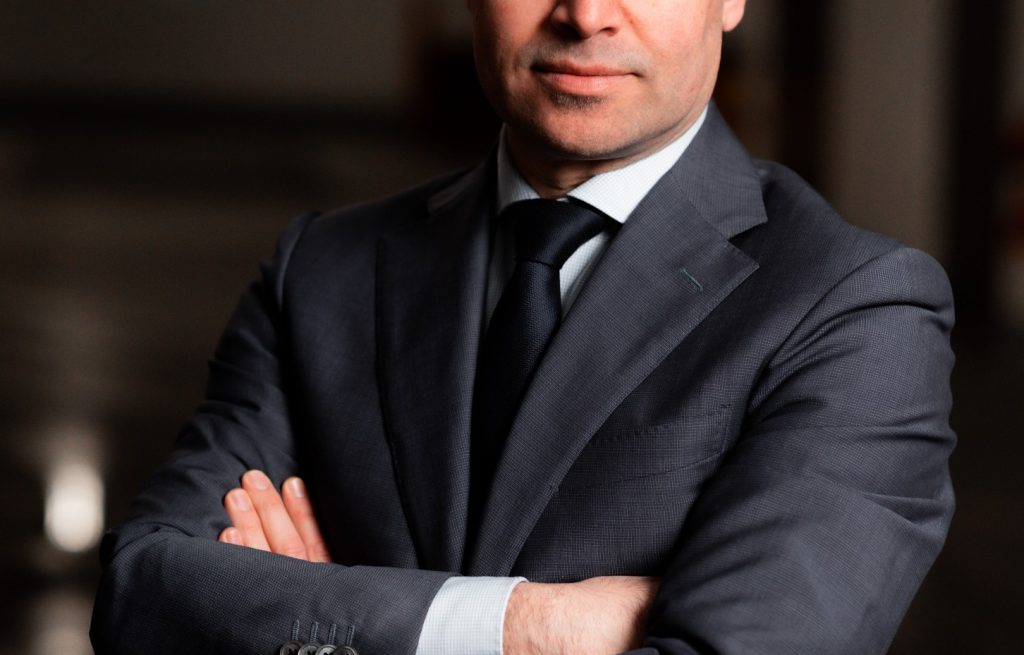How Thinking Like a CEO Can Make or Break a Funeral Business
In a recent interview for the Deathcare Decoded podcast, Ryan Thogmartin, CEO and founder of Connecting Directors and DISRUPT Media told an anecdote about hearing a speech at a death industry study group. In the story, when the speaker asked a room full of top-ranking funeral home owners how many considered themselves to be a CEO, no one raised their hands. He asked who was “president,” or “owner,” to the same effect. When asked directly what their position or title was, almost all funeral home owners answered “just a funeral director.” This fact was mind blowing for Ryan, and for good reason. If funeral businesses aren’t being run by leaders who think like leaders, it’s no wonder many businesses are struggling in today’s fast-paced and evolving market. Making the mental shift to thinking like a CEO can make or break a funeral business. Here is why.
The funeral industry is different, but the same
If you are a funeral home owner reading this article, you may be thinking “but owning a business in the funeral industry isn’t like owning a tech company or a law firm.” You may not have even planned to be a funeral home owner when you set out on your career path in the first place. A large majority of funeral homes are still family owned and operated today, so many times funeral home owners have inherited their business, or were given the business after a predecessor retired. However, according to Ryan Thogmartin, all funeral home owners should think and act like owners, regardless of how they came to be in the driver’s seat. He elaborates in this video clip from an interview with Deathcare Decoded:
The bottom line is, however you came to own your funeral business, you are still the owner and need to shift your thinking from employee to CEO, from director to visionary leader. Whatever way that you came to owning a funeral business the facts are still the same: in order to run your funeral business successfully, you have to think like a leader, not an employee.
Be the Visionary: Why Thinking Like a CEO Matters
There are tons of self-help business resources available online that outline essential characteristics that successful CEOs have, like transparency, clear communication, confidence, building strong company culture, setting clear and achievable goals for each department, leveraging data, etc. These are all important aspects of running a successful business. However, not very many of these resources go into detail as to why thinking like a CEO is so important, and exactly what that means.
In his interview with the Deathcare Decoded podcast, Ryan Thogmartin points out that funeral home owners need to be the visionaries of their companies who plan strategically for the future because they are owners, not employees. He explains that it’s important for funeral home owners to think like CEOs, not employees because owners think differently than employees do:
“[I]f you’re in the owner position and you don’t think of yourself as an owner, then you’re not making decisions as an owner you’re making decisions as an employee. Employees think differently than owners think.
[DISRUPT started having the most success when I stopped working in the business and I started spending 90% of my time on growing the business and personal development and saying ‘Ok, you are the leader, and leaders make these types of decisions.’ […] I really think it’s a problem. If we don’t look at ourselves as business owners and we just look at ourselves as a funeral director then we are not making business decisions and it’s easy then to see why the profession doesn’t evolve. […] I think there is a lot of power in the way you perceive yourself, and if you don’t perceive yourself as an owner then how is anyone going to take you seriously from a culture standpoint, from a mentor standpoint, from all the other things that owners have to make decisions on. If you don’t look at yourself and take yourself seriously as an owner why is anyone else going to?”
Businesses need someone at the helm looking ahead, planning big-picture, who is lifted out of the daily grind of business: This article published in Forbes by Shu Saito supports Ryan’s point:
“Every day you spend at work is a day you should also have an eye on the future. This is what sets you apart as a CEO and your company apart from the competition. Your vision is the magic, the potential, the blue sky of what could be. It’s this vision that will help you articulate your goals and inspire quality people to join your team. Some CEOs struggle because they don’t prioritize a clear vision. Instead, they fall into a tactical routine and face each individual problem that arises as it comes their way. This is the wrong way for a CEO to build a successful company. You need to define a clear picture of the company’s goals and prioritize that vision above the daily grind.”

3 Steps to Take Toward Thinking Like a CEO
- Shifting Internal Dialogue
When first attempting to shift your thinking from employee to CEO it might be unclear where to start. In his conversation on Deathcare Decoded, Ryan used a great analogy for how to begin this mental shift, which is simply changing and repeating your internal dialogue:
“If my daughter is struggling in school in a subject, and she tells herself everyday that she’s no good at math, then she is never going to excel at math. But if she woke up everyday and recited to herself an affirmation that “I am a good math student, I can solve this problem, math is my favorite subject’ and she tells herself these things repetitively, she’s going to start to believe these things. So, put that framework into a funeral home.“
Repeating affirmations and shifting internal dialogue over time is a tried and true method for changing behavior and beliefs across many platforms from classic cognitive behavioral therapy to trendy new weight loss methods. Gaining awareness of how we currently think, then consciously shifting those thought patterns to be affirmations that reflect where and what we want to be is the first step to changing our beliefs, and thus our behaviors and attitudes.
- Hiring the Right Staff to Run the Business
Good hiring is one of the most important aspects of a successful business. Having the right staff that are competent, creative, and align with your company’s culture and vision is vital. Especially since the CEO should be working on big-picture plans, having a strong staff to run the day-to-day operations and problem solving of the business ensures that the leader has the space and time to actually lead. In fact, Forbes states that: “Even when you have the vision of a CEO, if you don’t surround yourself with great people, your company will run into trouble. In fact, a bad hire can cost a company significant time and money. They can negatively affect employee morale, compromise employee relations and destroy your bottom line.”
In the Deathcare Decoded conversation with Ryan Thogmartin, Justin Crowe, Founder and CEO at Parting Stone explains why hiring practices have been a key aspect of growing his death tech start-up, Parting Stone:
“There is self-awareness in my strengths, and I’ve hired people to do the things that I’m not good at, to fill those gaps. I’m really good at creative thinking, business strategy, communication, and marketing, and I focus on those things. That communication involves ‘What does our brand look like?’ It involves ‘What does our content strategy look like?’ It involves ‘How do I talk to investors?’ and ‘How do I communicate to funeral directors?’ I can do that stuff. But for the actual production, we have a great Production Manager named Kelse. For operations, we have an outstanding Director of Operations named Amy. And, just in the last year, we went from being a 4 person company to having 17 staff in a 2,500 foot lab space, and every single day I’m thinking about ‘where is my value best brought?’ And ‘am I wasting time on something, and if so, how can we bring someone in who is better than me at this thing?’”
To hear more from Justin and to learn about how offering solidified remains can strengthen your business, sign up for Parting Stone’s monthly webinar below.
Thinking like a CEO doesn’t mean taking on every aspect of the business or micro-managing your way into chaos and stress. It often means objectively evaluating your strengths and weaknesses, stepping back from what you originally thought your job responsibilities would be, and hiring the right people to do the things you can’t or shouldn’t be doing as the leader of a company.
One excruciatingly important and often overlooked element of hiring the right staff is keeping in mind that after evaluating your strengths and weaknesses, the best decision could be to hire a CEO. You don’t have to be good at high level planning, inspiration, and team leading to be a good owner – you need to have self-awareness.
- Be Agile and Open to Change
When making the shift from employee to CEO you also have to be willing to change more than just your internal perceptions. When you lift yourself out of the day-to-day grind of a business and begin steering the entire operation, it may become apparent that the old ways of doing things aren’t sustainable or lucrative. This is difficult for many funeral business owners to face, especially if the business is inherited or a generational family endeavor.
In today’s quickly changing death care market, rethinking the way business has always been done could be an essential detail in growing your company. In the past year alone funeral businesses have had to rapidly evolve their relationships with technology, arrangements, and many other traditional ways of doing business. Practicing that type of professional agility, trying new things, and not being afraid of change might even come more naturally when your perspective has shifted from day-to-day employee to visionary leader.
According to Ryan, the deathcare space is piqued for evolution today:
“We get very comfortable with things that we know work. I often say when I’m giving presentations that we are romantic about the things of old because we understood those and we understood what we were going to get as a result of those things. As the world evolves, and the consumers change, the consumer isn’t the same as the consumer was 5 years ago, 10, 15 years ago, honestly the consumer has changed immensely in the last 12 years because everything else changed so that we’ve evolved very quickly. And if you break it down funeral homes do the same thing, right? They get a the dead body from point a to point b[…] at the end of the day the funeral home does what the funeral home does and that process hasn’t needed to evolve, what’s needed to evolve is how they engage the consumer in that process and how they incorporate the ideas of the consumer […] It’s not a straight line anymore.”
Ryan explains that consumers across the board evolve quickly, and funeral homes need to get out of their comfort zones in order to reach them. If there is no visionary at the helm of your funeral business, no one thinking like a CEO, then there is no one focused on forward-thinking business strategy, and your company will stagnate. Furthermore, when you are thinking like an owner and making decisions like an owner, it may become easier to see where and how change is needed and necessary for your business, because you’ll be looking ahead to where your business can go in the future, instead of grinding away at the day-to-day problems in the now. Having a leader who thinks like a leader and makes decisions like a leader will keep your business agile and growing.





